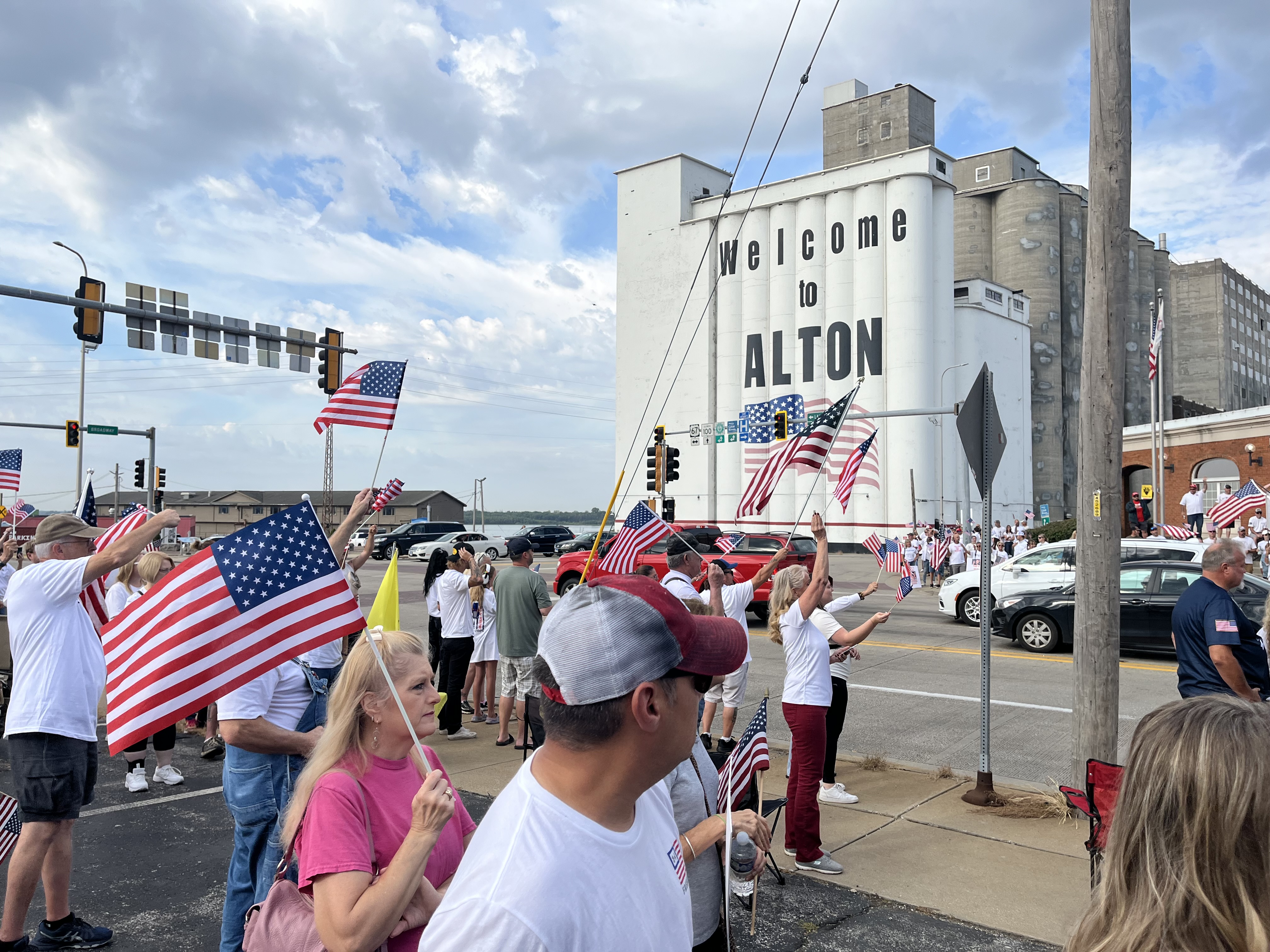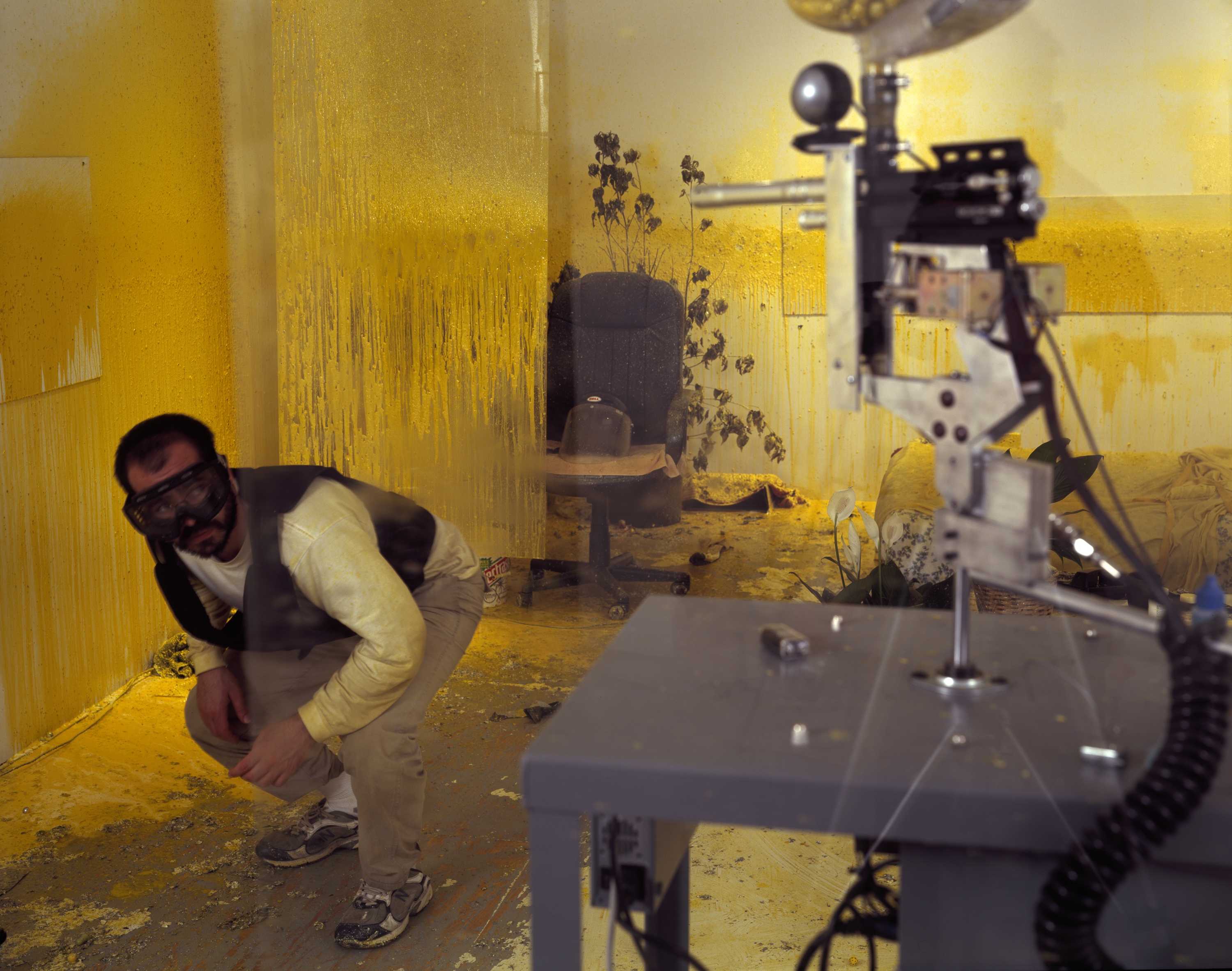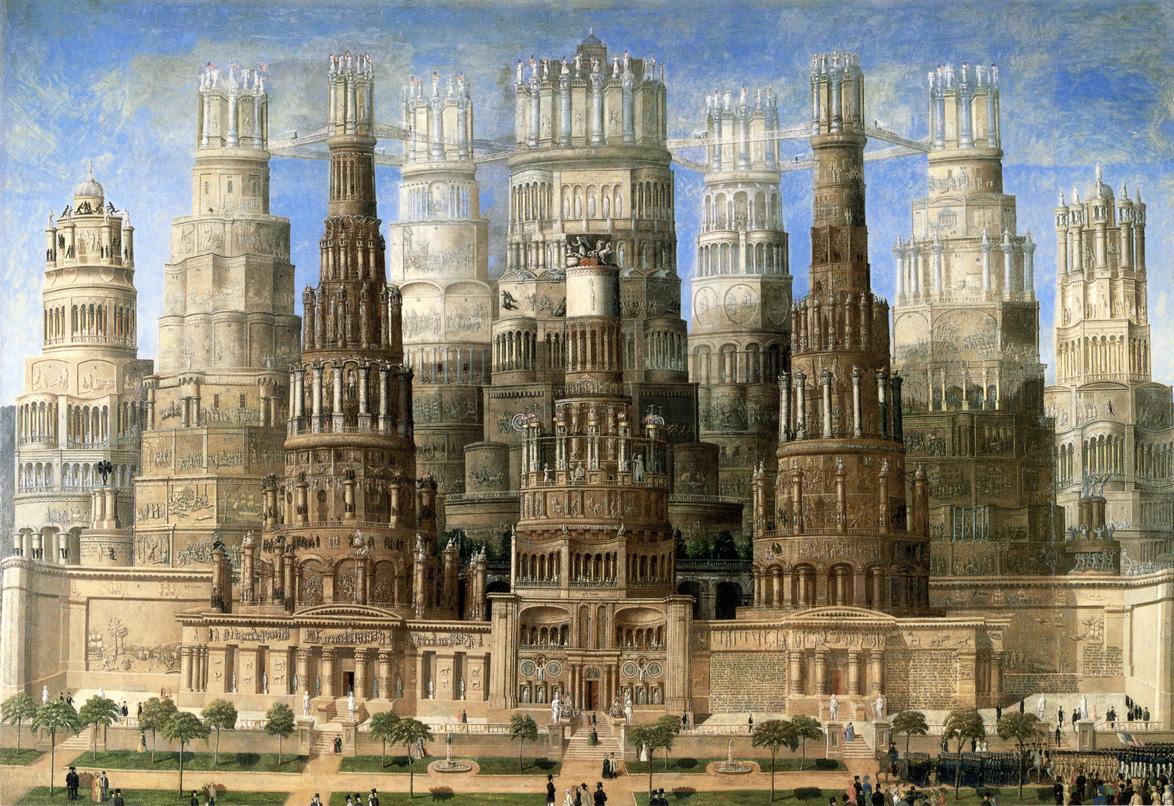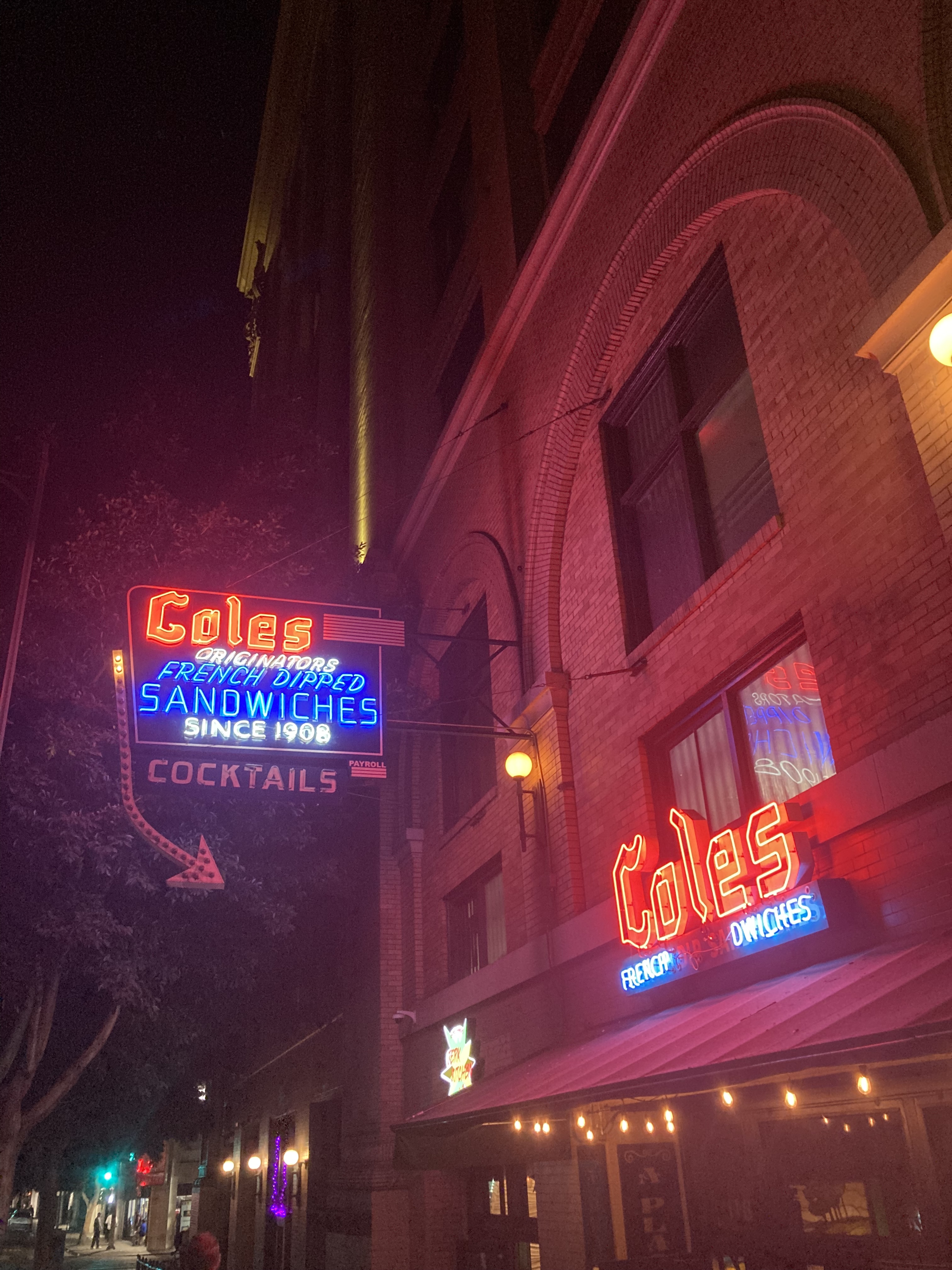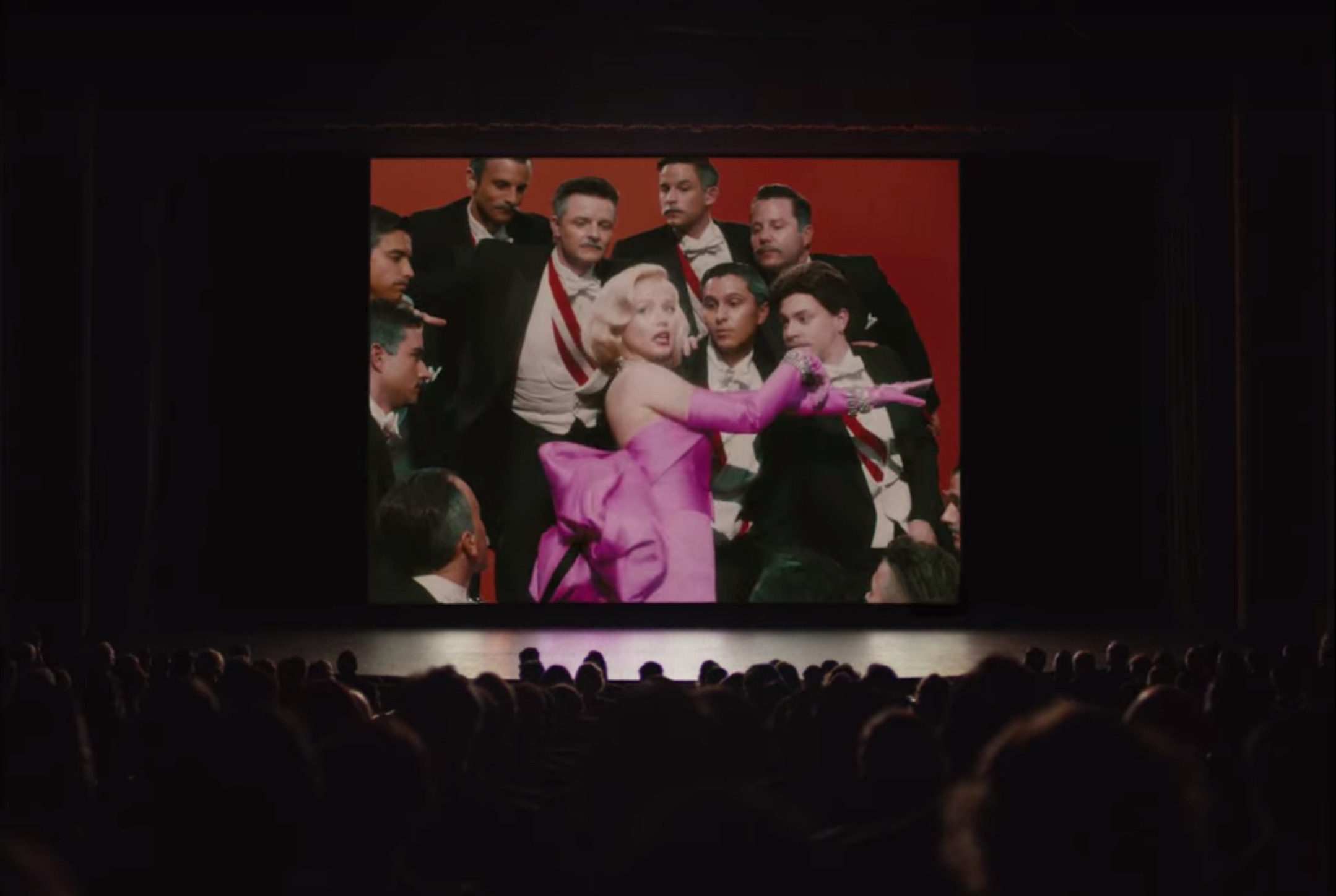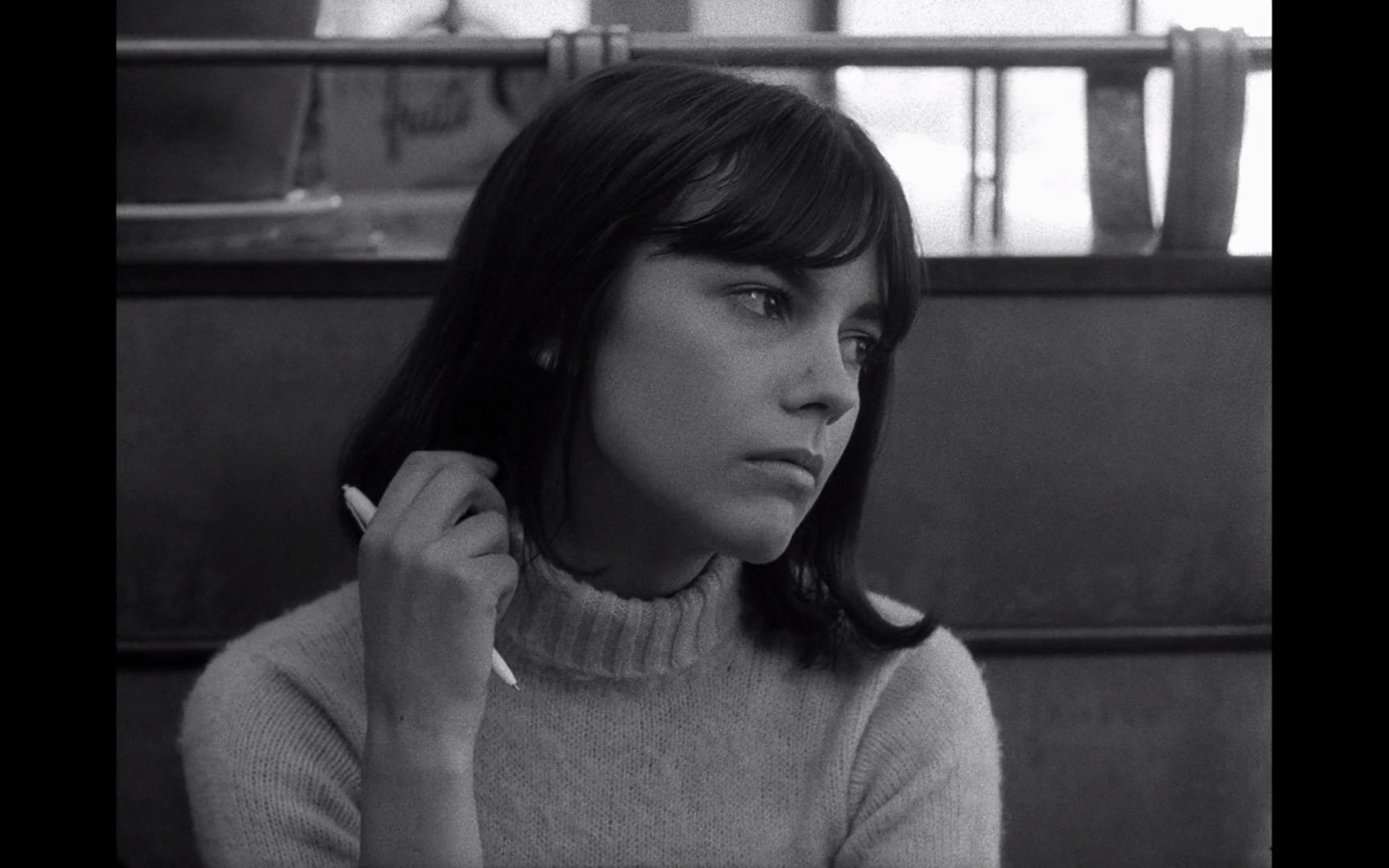Author’s Note: I pilfered the name for this column from Annette Lavers’s translation of a line by Charles Baudelaire describing a painting by Delacroix, which appears as an epigraph at the beginning of an essay by Roland Barthes: “The grandiloquent truth of gestures on life’s great occasions.” Baudelaire was writing about Delacroix’s depiction of the Crusaders pillaging Constantinople, and Roland Barthes was writing about wrestling. I can’t predict what I’ll be writing about in this column, but here I present to you a first “great occasion,” my account of a memorial for Charlie Kirk on the day before his funeral.
[drop-cap]
I’m driving down Piasa Street in Alton, on my way to a café to grade my students’ papers, when I see hundreds of people in white shirts standing on the sidewalk on either side of me. Alert to the political moment, I understand that I have driven into the middle of a memorial for Charlie Kirk. To be suddenly in the middle of a memorial for Charlie Kirk, in the comfort of my car, seems like a specifically American opportunity, and I decide that the only sensible thing to do is neglect my students’ papers and see what’s going on.
I park my car outside the abandoned Hotel Stratford and walk down the hill. On my way, I pass a couple of conservatives leaning against the driver’s side of a blue Chevrolet. They are kissing and holding each other’s waist. They are kissing and holding each other and leaning against the hot blue metal of the car and it strikes me that the only thing missing is a sunset. It’s a few minutes before 9am on a Saturday morning.
It’s a few minutes after 9am when I arrive at the parking lot opposite the Alton Visitor Center, where three or four hundred people, most of them wearing white t-shirts with the word “FREEDOM” printed on the front, are assembling for the memorial. My first impressions are that everyone seems relatively at ease, but some of them may be suffering from an oversupply of American flags. An old woman is handing them out, moving through the crowd with vigilance and poise, and the result is that people are waving two flags in one hand and pink vapes in the other. The old woman handing out flags runs out before she gets to me.
Unfortunately, I’m one of three people who are not wearing a white t-shirt, which means I look a little lost among the gray-bearded middle-aged men spitting snus at their wives’ feet. I tell myself that the only thing to do in this situation is show a bit of team spirit. A chance presents itself when a woman dressed not only in a white shirt but also in white pants climbs onto an old 6x6 army truck parked a little off to the side and starts speaking to the crowd. “We are Charlie!” she says. “We are Charlie!” the crowd responds. I say it with them the second time and feel better about not wearing a white shirt.
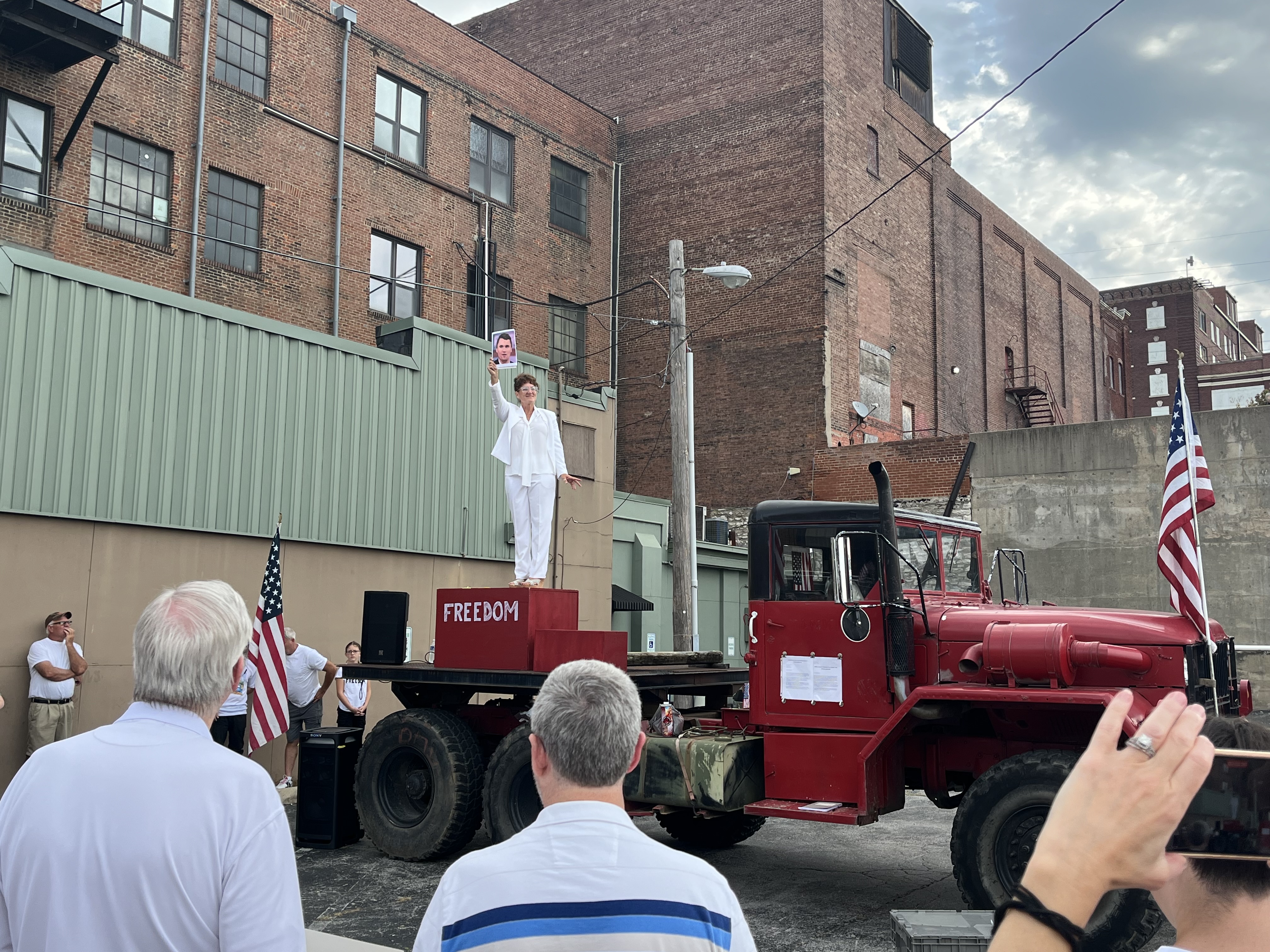
I move closer to the 6x6, just behind a stolid line of people holding individual letters that read “WE ARE CHARLIE,” so that I can hear what she has to say. “We are Charlie,” the woman in white says one more time. After a quick comment about our location—“look over there,” she says, pointing across the street to the lifesize statues of Abraham Lincoln and Stephen A. Douglas, which memorialize “one of the great debates in history”—she turns to the subject at hand. “It’s a blessing to honor Charlie,” she says. “If he were standing next to me, he would say, ‘God did this.’” She pauses, and then says, “We love God!” (the meaning here is hard to parse, and only a few people say it back.) “But I want everyone to know,” she continues, unphased, “that when you take a life, you’re not just killing him. You’re killing a piece of the God in him. So I ask you to open up your heart and receive this message.”
It’s now fifteen minutes after 9am. The air smells like fabric softener, river, and marijuana. My students’ essays are on the backseat of my car and I am surrounded by people mourning the death of a man I did not plan to mourn. I tell myself I have nothing to lose by opening my heart. But as I’m opening my heart, the lights at the nearby intersection change color, and fifteen cars drive through the crowd, which is still split, strangely, on both sides of the road abutting the parking lot. All the people hitting their car horns and yelling “Freedom!” from their windows make it difficult to concentrate, but I manage to open my heart just enough before the next speaker steps up onto the 6x6. This is Father Dobson, who will lead us in prayer.
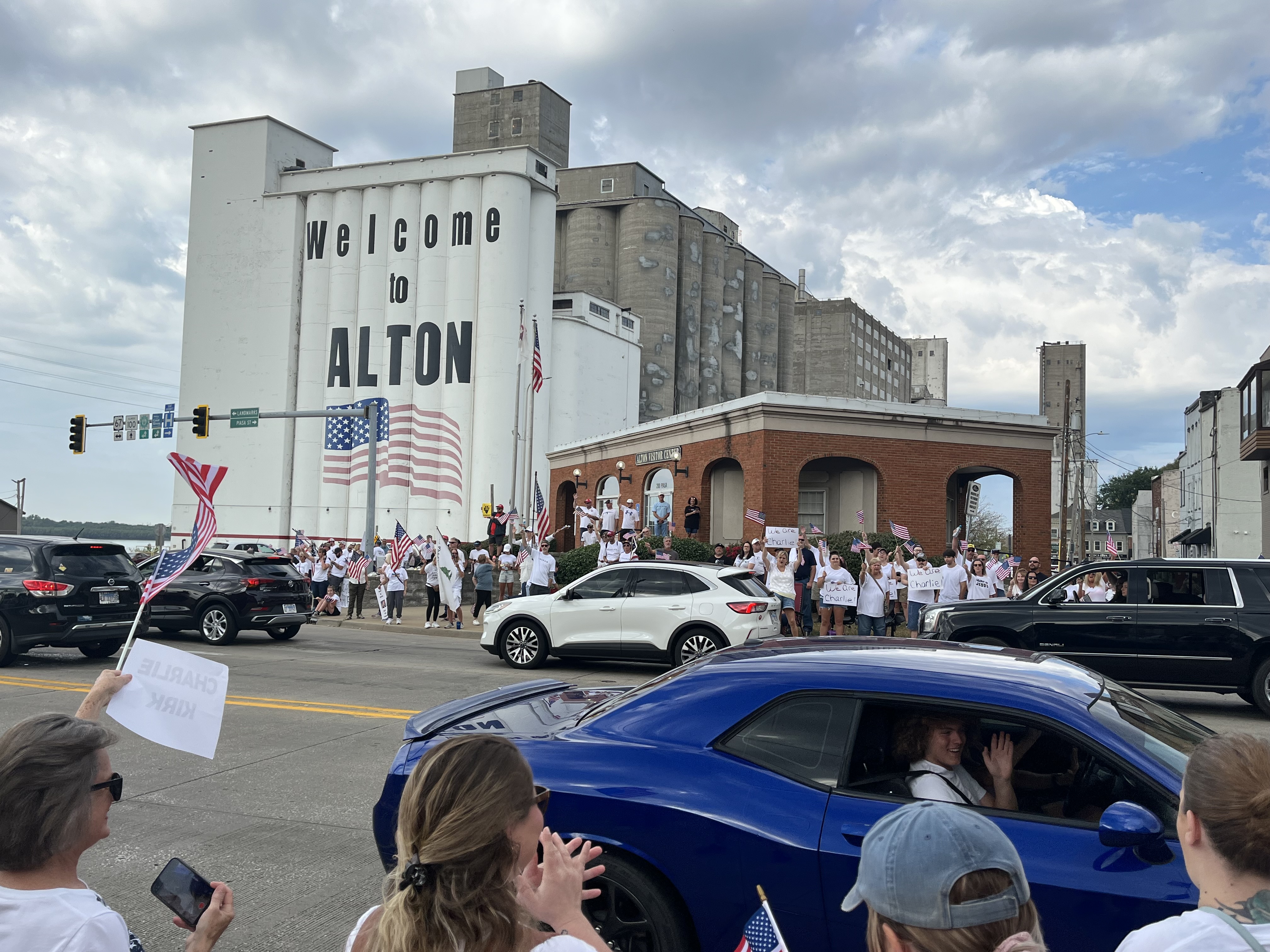
Father Dobson leads us in prayer, pierced, here and there, by more car horns and the occasional “Yes!” and “Amen!” from people in the crowd. First he asks for grace for Charlie Kirk and his family. Then he takes the opportunity to thank God for all the white shirts in the crowd (and for America, and for freedom, and for the freedom to believe that freedom is not granted by the constitution, but by You, Heavenly Father). After thanking God for Charlie Kirk and also for Jesus Christ, Father Dobson prays that we know his prayer is actually not political, but spiritual. He ends his prayer with another prayer, but this time for peace—“for peace,” he says gravely, “to reign for thousands upon thousands of people in our country.” When he says, “We ask you all in Jesus’s name,” we all say, “Amen.”
The appropriate thing to do next is sing the national anthem. After that, we sing “God Bless America,” led by a man named Grant. Both of these renditions are a cappella in the open air, and for a few moments, flushed with the feeling of freedom that both songs imagine, I forget that I’m standing in a parking lot in Downtown Alton, surrounded by the city’s conservative Christians. For a few moments, I would even say that I feel moved, caught up in the transcendent symbolism of the lyrics and the setting. That is until a fat man on the other side of the road, standing on the steps of the Visitor Center, decides to yell, “Republican women are beautiful!” He’s met with appreciation and applause, as is the woman in white, who has returned to the 6x6 to tell us that Charlie Kirk did not die in vain, that his calling was to stand in the truth of the Bible and free speech, and that all of us gathered here today are “soldiers” in “Charlie’s army.”

